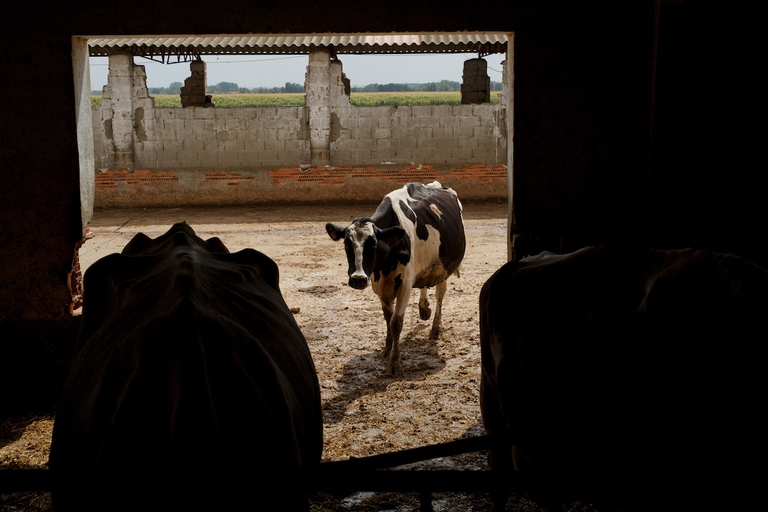
After a landslide led to twelve deaths on the island of Ischia, questions have been raised about the impacts of illegal building, tourism, and climate change.
Secondo uno studio svedese, solo se mangeremo meno carne bovina e latticini potremo centrare i target di riduzione delle emissioni di gas ad effetto serra.
If Europe wants to meet its objectives to decrease greenhouse gas emissions, its citizens have to reduce their meat and dairy consumption. In other words, climate protection cannot leave our eating habits out of consideration. A scientific study carried out by Chalmers University of Technology of Göteborg, Sweden, points out how agriculture and livestock are responsible for a quarter of the emissions released in the EU, which are considered hazardous for the environment.
This industry – as explained by the study’s authors, specialised in environmental economy and biology – will have to cut its atmospheric pollution to 25%. Indeed, food farming represents a real threat to the entire world, considering that nitrous oxide from fields and methane from livestock may double by 2070 if the current methods (and amount) of production are not changed. “This alone would make meeting the climate target essentially impossible”.
Consequently, a significant reduction – by 50% or more – in beef consumption and dairy production will be unavoidable. According to study’s co-author Stefan Wirsenius, favouring other types of meat – with a lower impact on the environment – will be necessary. The Swedish study underlines that the production of one kilogramme of beef generates about 200 kg of CO2 (compared to 10 kg and 30 kg for the same amount of pork and chicken meat respectively).
There’s more. According to a study carried out by the NGO Friends of the Earth, one kilogramme of beef requires 15,500 litres of water to be brought to our tables. With the same water amount, 12 kg of wheat or over 100 kg of carrots could be produced.
Not to mention that about 40% of the annual production of wheat, rye, oat, and corn is today used for fodder. This means that humanity prefers feeding cows with huge amounts of food rather than eating that amount directly.
Siamo anche su WhatsApp. Segui il canale ufficiale LifeGate per restare aggiornata, aggiornato sulle ultime notizie e sulle nostre attività.
![]()
Quest'opera è distribuita con Licenza Creative Commons Attribuzione - Non commerciale - Non opere derivate 4.0 Internazionale.
After a landslide led to twelve deaths on the island of Ischia, questions have been raised about the impacts of illegal building, tourism, and climate change.
Not much snow, peaks of 19 degrees Celsius in Norway and even 28 degrees in France: official data confirms the anomalously high temperatures of this past winter.
Secondo uno studio condotto da Chatham House e dall’Università di Glasgow le persone sarebbero propense a ridurre il consumo di carne per motivi di salute e per ridurre l’impatto ambientale.
Ocean warming has risen to record highs over the last five years: just in 2019 the heat released into the world’s oceans was equivalent to that of 5-6 atomic bombs per second. The culprit, no doubt, is climate change.
What did Greta Thunberg tell participants at the 2020 World Economic Forum in Davos? Once again, the Swedish activist underlined the total lack of concrete solutions to the climate crisis presented by leaders so far.
The list of human and animal victims of the Australia wildfires keeps growing – one species might already have gone extinct – as the smoke even reaches South America.
Kivalina is located on a small island once guarded by sea ice, which is now melting due to global warming. While the sea threatens to wipe the village off the face of the Earth, its inhabitants refuse to give up their lives and traditions.
Thanks to activists, the voice of the world’s peoples resounded through the COP25 like an alarm bell. Governments didn’t reach the results they demanded, but their cries and messages were stronger than ever, reaching even those who weren’t in Madrid.
Climate change poses a risk for millions. However, women are the most vulnerable to its negative consequences: a few simple considerations by the Italian Climate Network help us perceive the global implications of this.









